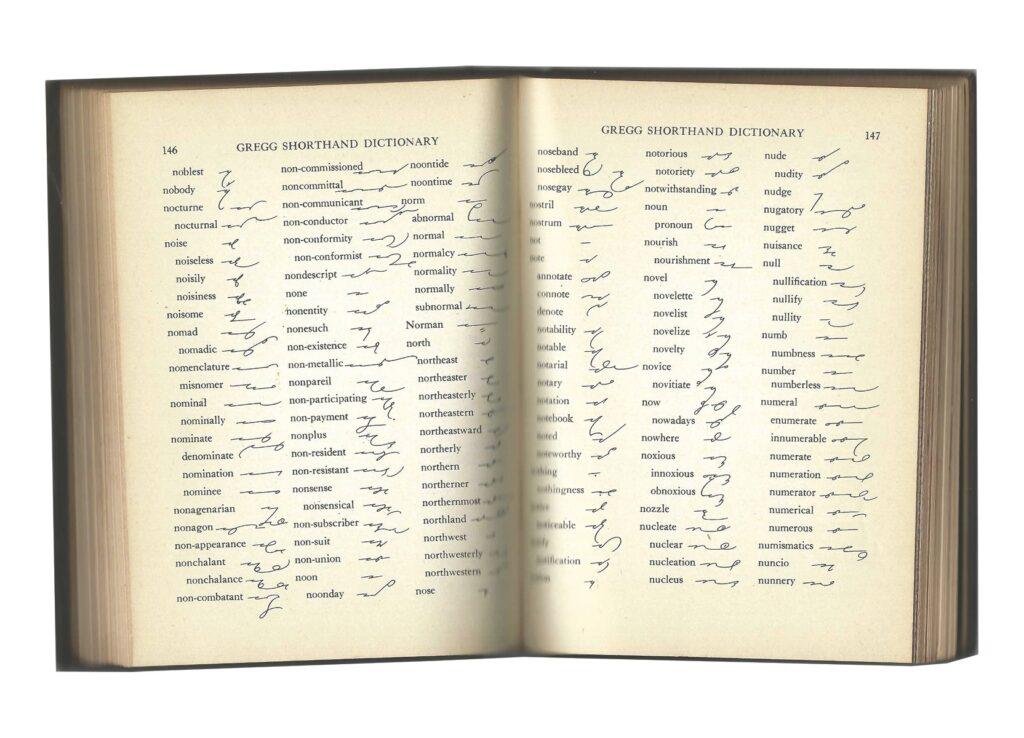
Much like today’s text abbreviations, language users have looked for ways to write faster.
Shorthand, also known as stenography from the Greek “stenos” (narrow) and “graphein” (to write), was first created using the English alphabet by Sir Issac Pitman in 1837.
Pitman Shorthand is still taught, using a series of curved lines, loops, and arcs to represent sounds of vowels and consonants. John Robert Gregg (1867-1948) learned Pitman shorthand as a young man in Ireland. Before developing his own shorthand system in 1893, Gregg helped devise improvements to the French-developed Stenographie Duploye but got no credit for his work.

Gregg founded his own publishing company to print the numerous texts he devised to promote his system. Titles included Gregg Speed Studies, Progressive Exercises, and a magazine devoted to increasing the skills of stenographers.
The Gregg Shorthand Dictionary was first published in 1901 and contains 19,000 words written using the Gregg shorthand method. Following each entry, the shorthand equivalent was composed by Mrs. Winifred Kenna Richmond, acknowledged by Gregg himself for her “artistic manner.”
The book’s introduction states, “‘The Gregg Shorthand Dictionary’ should not only teach the beginner but should help the expert to crystallize his knowledge by careful classification of the shorthand forms and consistency in the use of the abbreviating devices.”
From aback to zwieback, entries that were “short, simple words that any student who is still working on the early part of the Manual can easily write, such as cat, dog, etc.,” were not included in the dictionary.
In business, shorthand was used primarily to take notes at meetings or compose letters, which in turn would be translated and typed into its final format. Business schools that focused on career training offered shorthand and typewriting courses, which were also often required courses for female high school students.
As recording devices and speech-to-text programs have become more prevalent, shorthand is rarely used today. Online courses have replaced textbooks for those who would like to learn either Pitman or Gregg Shorthand.


















